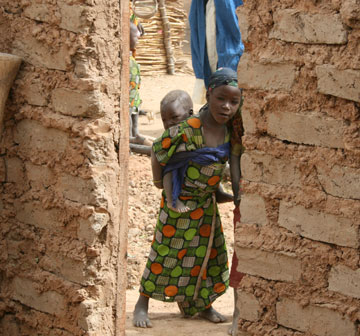Five Points of Response (Response to Stabell article)
by Jim Harries
Existence | Fear
Affirmation of the existence of witchcraft could generate fear. On the other hand, ignoring things that make a fundamental contribution to the functioning of human societies results in important contexts not being addressed.
Existence | Fear
Affirmation of the existence of witchcraft could generate fear. On the other hand, ignoring things that make a fundamental contribution to the functioning of human societies results in important contexts not being addressed. It is important for missionaries to engage with who people are, and not who they might like them to be. If witchcraft indeed does “exist” for African people, that “existence” will influence the way they live and how they will respond to the gospel.
Languages
Stabell suggests that my advocating for the use of indigenous languages is really only valid in rural areas. I have addressed this widespread misconception in detail elsewhere (e.g., Harries 2013). In brief, languages are linked to cultures. The use of French by Congolese nationals in Kinshasa will almost invariably be different from native French ways of using French. (Should the Congolese carefully imitate native French ways of using French, this will create a gap between the way they use language and their own worldviews. Such concealing of worldview misleads many missionaries.) Use of an African language avoids confusion (see Bujo, cited by Stinton 2004, 141). This applies especially if the European language is already known by the missionary before visiting his or her ministry location, but less so if someone was to learn French on, say, the streets of Kinshasa.
Witchcraft | Jealousy
Stabell suggests that mystical powers underlying witchcraft are largely unknown in Western communities. One reason for making the link between witchcraft and jealousy overt is to point out that this is not necessarily the case. Flagrantly vaunting one’s material wealth or prestige is despised in the West; overdressing, conspicuously eating without sharing with those who are hungry, and “showing off” are considered reprobate behaviors. Public displays of sexuality are taboo, highly frowned upon, or even illegal.
A family that leaves their visitors alone without food as they eat are inviting negative repercussions. When a woman says, “Hi. I’m Deb,” if you respond with, “I am the Honourable Rt. Rev. Dr. Professor Steven Nob” (even if this is who you are), then expect to be laughed at or shunned. The consequences of inviting jealousy in Africa translate into witchcraft. In Africa, the forces created by jealousy are the powerhouse of witchcraft.
Demonization of African Religions
Stabell mentions the demonization of African religions. Among the Luo people of Kenya, the term juok, frequently translated into English as “witchcraft”, was once considered to be “good” (Hoehler-Fatton 1996, xiv) and could even be a translation for God (Mboya 1983, 91). Demonization of African religions has arisen as a result of westerners condemning African traditions before understanding them. Simply calling what goes on in Africa witchcraft is a way of applying limited understanding. Condemnation would be reduced if African languages were taken more seriously.
Scripture Use
Stabell suggests that the Bible gives no examples of covert attacks using mystical powers. What is not visible to westerners reading through their presuppositional mindsets may however be very visible to Africans, especially when the Bible is translated into African languages.
Why were the Pharisees opposed to Jesus, if not as a result of their envy of him? By what means did they manage to get the innocent Jesus condemned under Roman law, if not through manipulation of mystical powers? Hazael killed Ben Hadad when he discovered that he would recover from his illness (2 Kings 8:7-15). Is it not likely that he used “mystical means” to cause the illness in the first place?
I do agree with Stabell—the biblical text does not advocate for the identification of or punishment of witches as a means to healing. This isin Africa a strongly counter-cultural message that deserves special emphasis.
References
Harries, Jim. 2011. “The Existence of Witchcraft in Africa.” Evangelical Missions Quarterly 47(3): 290-293.
_____. 2013. “The Immorality of the Promotion of Non-Indigenous Languages in Africa.” Global Missiology 2(10). Accessed January 7, 2013, from ojs.globalmissiology.org/index.php/english/article/viewFile/1137/2635
Hoehler-Fatton, Cynthia. 1996. Women of Fire and Spirit: History, Faith and Gender in Roho Religion in Western Kenya. Oxford: Oxford University Press.
Mboya, Paul. 1983. Luo Kitgi gi Timbegi. Kisumu: Anyange Press Ltd.
Stinton, Diane, B. 2004. Jesus of Africa: Voices of Contemporary African Christology. New York: Orbis Books.
….
Since 1988, Jim Harries, PhD, has taught theology in Zambia and then Kenya, primarily in African languages, and with a focus on reaching indigenous churches. Jim chairs the Alliance for Vulnerable Mission. He has published a number of books and articles. See jim-mission.org.uk.
EMQ, Vol. 49, No. 4, pp. 401-402. Copyright © 2013 Billy Graham Center. All rights reserved. Not to be reproduced or copied in any form without written permission from EMIS.

